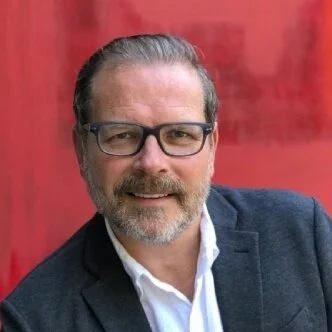(Highlights) MIKE PONDSMITH
/Creator of Cyberpunk · Origins Award-Winning Game Designer
One of the things I’ve noticed is that a lot of those younger people are actually much nicer than they need to be. And they have to realize that this is going to be your world. It turns out the way you want to make it and so you should be thinking now about what you want out of this. What do you want that world to be? Do not wait around until the two generations beyond you have gone ahead and done it the way they want it because, by the time they get done, you’re not going to have the chance to shift it to where you want it. So start thinking now about where do you want to be? What is the future you want? And don’t be nice about it, just go ahead and start planning it now.





